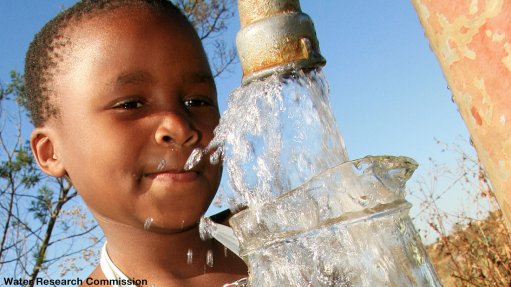
Three in 10 people around the world lack access to safe and readily available water at home, and almost six in 10 do not have safe managed sanitation, a new United Nations report has revealed.
The World Health Organisation (WHO) and the UN Children’s Fund (UNICEF) joint report “Progress on Drinking Water, Sanitation and Hygiene: 2017 Update and Sustainable Development Goal Baselines” was released on Wednesday.
It found many homes, healthcare facilities and schools also lack soap and water for handwashing, putting the health of all people – especially young children – at risk from deadly diseases.
As a result of lack of these basic services, millions fall ill to diseases – that could, otherwise, have been easily prevented – such as diarrhoea, which claims the lives of 361 000 children under the age of five, every year, noted the UN agencies.
Good hygiene is one of the simplest and most effective ways to prevent the spread of diseases such as diarrhoea, cholera, dysentery, hepatitis A and typhoid.
However, findings in the report revealed that access to water and soap for handwashing varies immensely in the 70 countries with available data, from 15% of the population in sub-Saharan Africa to 76% in western Asia and northern Africa.
These significant inequalities also put the implementation of the Sustainable Development Goals (SDGs), in particular Goal 6 on ensuring availability and sustainable management of water and sanitation for all, at risk.
Backed by the data, the two UN agencies also warned that in as many as 90 countries around the world, progress towards basic sanitation is too slow, “meaning they will not reach universal coverage by 2030”.
According to the report, of the 2.1 billion people who do not have safely managed water, 844 million do not have even a basic drinking water service.
This includes 263 million people who have to spend over 30 minutes per trip collecting water from sources outside the home, and 159 million who still drink untreated water from surface water sources, such as streams or lakes.
Furthermore, of the 4.5 billion people who do not have safely managed sanitation, 2.3 billion still do not have basic sanitation services, including nearly 600 million people who share a toilet or latrine with other households, and 892 million people – mostly in rural areas – who defecate in the open.
Improvements to these services, are therefore essential for realising the 2030 Agenda for Sustainable Development and giving the most vulnerable a chance at a better future.